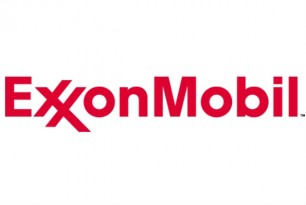ExxonMobil plans appeal of $236 million jury award in landmark MTBE case
 A New Hampshire jury took less than two hours Tuesday to find ExxonMobil liable for widespread groundwater contamination in the state, and ordered the company to pay $236 million for groundwater testing and cleanup.
A New Hampshire jury took less than two hours Tuesday to find ExxonMobil liable for widespread groundwater contamination in the state, and ordered the company to pay $236 million for groundwater testing and cleanup.The verdict ended a landmark product liability trial that began in mid-January and involved powerhouse lawyers — one team representing one of the country’s largest corporations, another hired by New Hampshire to bring the case.
The case, which involved the gasoline additive MTBE, was the longest in Merrimack County Superior Court history, and the verdict was the largest ever won by the state, outgoing Attorney General Michael Delaney said.
“We made history with this case,” said Delaney, who credited one of his predecessors, Peter Heed, for initiating the case 10 years ago. It grew to eat up more than 15,000 hours of attorney work, 8 million pages and 1,800 pleadings.
“Certainly Exxon had the time and the resources to make its defense to the state’s case, but 12 citizens of New Hampshire quickly rejected those defenses,” Delaney said.
An ExxonMobil attorney said the company would appeal, and the company has strong legal and factual arguments to make.
“We appreciate the jurors’ service during this long trial, but erroneous rulings prevented them from hearing all the evidence and deprived us of a fair trial,” said David Lender, outside counsel for ExxonMobil.
The trial dealt with the use of MTBE, the ether-based compound used in gasoline that had been reformulated to meet air-pollution concerns in the state’s four southern counties.
ExxonMobil argued that the dangers of MTBE were well-known, and that the state entered the reformulated gas program voluntarily.
“MTBE worked as intended to improve our air quality and the benefits of its use substantially outweighed the known risks. MTBE contamination in New Hampshire is rapidly decreasing and the state’s current system for cleaning up gasoline spills ensures safe drinking water,” Lender said.
Jessica Grant, the state’s lead attorney on the case, said Exxon’s own engineers studied MTBE in the mid-1980s. Company engineers determined it was too risky to be used on a blanket basis, and never should be used in places such as New Hampshire, which has vulnerable geology and significantly relies on groundwater for drinking water.
“What I think they (the jury) understood was the problem was avoidable,” said Grant, a member of the San Francisco law firm Sher-Leff.
The damages that the state sought from all 16 oil companies was $816 million, and the jury awarded the state everything it asked for, which represented Exxon’s approximate 30 percent share of the market, Delaney said.
An extrapolation of those numbers means that Exxon could have settled the case for about $55 million.
Professional standards barred Delaney from answering questions about confidential settlement discussions, he said.
Delaney said he does not anticipate a $236 million check in the near future, and he could not even break down attorney fees and court costs Tuesday.
But another $136 million — money that 15 oil companies paid the state to avoid a trial — is either in hand or will be paid by June, Delaney said.
He said $97 million of that will be available to the state, and his office and the Department of Environmental Services are forming a comprehensive plan that deals with determining the scope of MTBE contamination, identifying proper treatment options and implementing them.
He stressed that the use of the money for cleanup would be consistent with the jury’s wishes.
But sources in the Legislature and governor’s office have questioned whether the money can be used for other purposes, the New Hampshire Union Leader reported last week.
“This lawsuit was brought for a specific purpose — to clean up the state’s groundwater — and the proposal the Attorney General’s Office and the Department of Environmental Services brings forward will be to do exactly that,” Delaney said.
About 40 percent of the state relies on private wells. State officials said 600 wells are known to be contaminated with MTBE; 225 sites are high risk.
But Michael Wimsatt, director of Waste Management Division at DES, said 5,500 wells could be contaminated. He said the state has installed in-house treatment for some wells. The system involves air stripping and carbon filtering.
The systems can cost $3,000 to $10,000, depending on the amount of contamination and water demand. The system also involves annual maintenance costs.
You can return to the main Market News page, or press the Back button on your browser.

